News
Over 1.5m Muslim Pilgrims Brave Extreme Heat To Pray On Mount Arafat In Hajj Climax
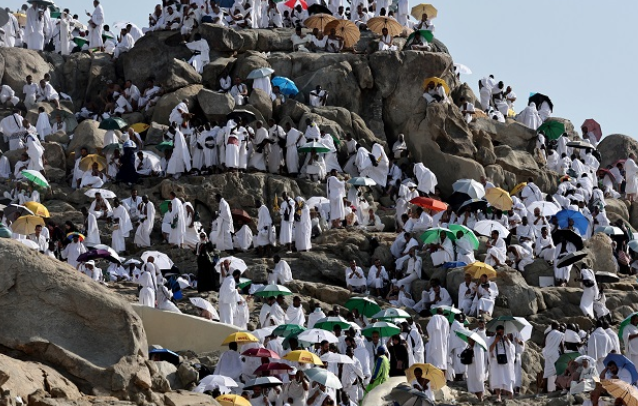
By Kayode Sanni-Arewa
More than 1.5 million Muslims braved extreme heat to reach Mount Arafat on Saturday for the high point of the annual hajj pilgrimage, praying for hours, especially for Palestinians in war-ravaged Gaza.
Clad in white, worshippers began arriving at dawn for the most gruelling day of the annual rites, ascending the rocky, 70-metre (230-foot) hill where the Prophet Mohammed is believed to have given his last sermon.
“This is the most important day,” said 46-year-old Egyptian Mohammed Asser, who came prepared with a list of prayers. “I pray also for the Palestinians. May God help them.”
More than 1.5 million Muslims will pray on Mount Arafat in soaring temperatures on June 15, in the high-point and most gruelling day of the annual Hajj pilgrimage, one of the five pillars of Islam that must be performed at least once by all Muslims who have the means to do so. (Photo by Fadel Senna / AFP)
Muslim pilgrims gather at Saudi Arabia’s Mount Arafat, also known as Jabal al-Rahma or Mount of Mercy, during the climax of the Hajj pilgrimage on June 15, 2024. (Photo by Fadel Senna / AFP)
Muslim pilgrims pray at dawn on Saudi Arabia’s Mount Arafat, also known as Jabal al-Rahma or Mount of Mercy, during the climax of the Hajj pilgrimage on June 15, 2024.. (Photo by Fadel Senna / AFP)
This year’s hajj is unfolding in the shadow of the war in Gaza between Israel and Hamas, which was triggered by the Palestinian militants’ unprecedented attack on southern Israel on October 7.
The assault resulted in the deaths of 1,194 people, mostly civilians, according to an AFP tally based on Israeli official figures.
Israel’s retaliatory military offensive has killed at least 37,266 people in Gaza, also mostly civilians, according to the Hamas-ruled territory’s health ministry.
Saudi Arabia’s minister in charge of religious pilgrimages, Tawfiq al-Rabiah, warned last week that “no political activity” would be tolerated during the hajj.
But that did not stop at least one pilgrim from chanting in support of the Palestinians who have endured more than eight months of incessant bombardment.
“Pray for our brothers in Palestine, in Gaza… may God give victory to the Muslims,” he shouted.
In a message to hajj pilgrims on Saturday, Iranian supreme leader Ayatollah Ali Khamenei said “the ironclad resistance of Palestine and the patient, oppressed people of Gaza… must be fully supported in every way”.
Some 2,000 Palestinians are performing the hajj at the special invitation of Saudi King Salman, official media said.
Muslim pilgrims pray at dawn on Saudi Arabia’s Mount Arafat, also known as Jabal al-Rahma or Mount of Mercy, during the climax of the Hajj pilgrimage on June 15, 2024. (Photo by FADEL SENNA / AFP)
Muslim pilgrims pray at dawn on Saudi Arabia’s Mount Arafat, also known as Jabal al-Rahma or Mount of Mercy, during the climax of the Hajj pilgrimage on June 15, 2024. (Photo by Fadel Senna / AFP)
‘Scary’ heat
The hajj, one of the world’s biggest religious gatherings, is increasingly affected by climate change, according to a Saudi study published last month that said regional temperatures were rising 0.4 degrees Celsius each decade.
The rituals, which take at least five days to complete and are mostly outdoors, are “not easy because it is very hot”, said Abraman Hawa, 26, from Ghana.
“We have sun… but it is not as hot. But I will pray to Allah at Arafat, because I need his support,” she added.
The temperature was expected to hit 43 degrees Celsius (109.4 degrees Fahrenheit) on Saturday, creating challenges for pilgrims who arrived at Mount Arafat after spending the night in a giant tented city in Mina, a valley outside Mecca, Islam’s holiest city.
Saudi authorities have urged pilgrims to drink plenty of water and protect themselves from the sun. Since men are prohibited from wearing hats, many carry umbrellas.
More than 10,000 heat-related illnesses were recorded last year, 10 percent of them heat stroke, a Saudi official told AFP this week.
Ahmad Karim Abdelsalam, a 33-year-old pilgrim from India, admitted that he found the prospect of passing hours on Mount Arafat “a little scary”.
But with the help of an umbrella and water sprays, “God willing, everything will go well”, he said.
A Muslim pilgrim prays at dawn as he stands on Saudi Arabia’s Mount Arafat, also known as Jabal al-Rahma or Mount of Mercy, during the climax of the Hajj pilgrimage on June 15, 2024. – The ritual is the high point of the annual pilgrimage, one of the five pillars of Islam, that officials say could be the biggest on record after three years of Covid restrictions.
‘Once in a lifetime’
The hajj is one of the five pillars of Islam and all Muslims with the means must perform it at least once.
Yet visas, doled out to individual countries on a quota system, can be difficult to obtain.
“It’s a chance that only comes once in a lifetime, I couldn’t not come,” said Abdulrahman Siyam, a 55-year-old Iraqi pilgrim who was performing the rituals on a prosthetic leg.
After Mount Arafat, the pilgrims will head to Muzdalifah, where they will collect pebbles to carry out the symbolic “stoning of the devil” ritual in Mina on Sunday.
The hajj is said to follow the path of the Prophet Mohammed’s final pilgrimage, about 1,400 years ago.
It is an important source of legitimacy for the Al Saud dynasty, whose monarch has the title “Custodian of the Two Holy Mosques”, in Mecca and Medina.
It is also a major financial windfall for the conservative country, which is trying to develop religious tourism as part of a drive to reduce its dependence on crude oil.
The kingdom received more than 1.8 million pilgrims last year for the hajj, around 90 percent of whom came from abroad.
It also welcomed 13.5 million Muslims who came to perform umrah, the pilgrimage which can be done year-round, and aims to reach 30 million pilgrims in total by 2030.
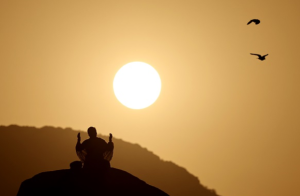
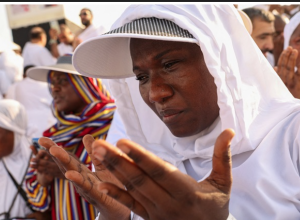
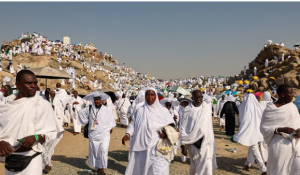
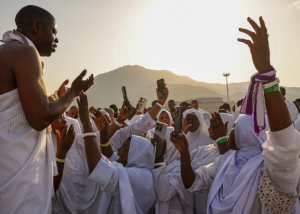
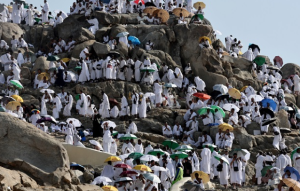
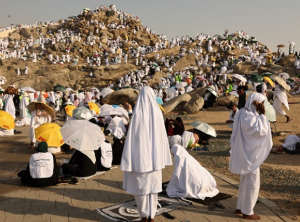
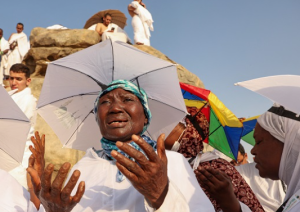
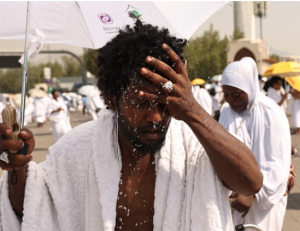
News
Nigeria’s inflation jumps to 24.23% in March 2025

Nigeria’s headline inflation rate rose to 24.23% in March 2025, according to the official government data source, the Nigeria Bureau of Statistics (NBS).
The rise in the country’s inflation rate, from 23.18% back in February 2025 to 24.23% in March 2025, reflected a major increase in the rising commodity and energy costs in the last few weeks.
According to the March 2025 Consumer Price Index (CPI) Report which measures the inflation rate released by the government agency on Tuesday, the country’s food inflation rate was 21.79% year-on-year in March 2025.
The food inflation rate, however, showed a decrease compared to the food inflation rate of 23.51% recorded in February 2025.
Economists had predicted that the country’s inflation rate which decreased minimally in February would rise when the Dangote Refinery and the state-run NNPCL got entangled in a petrol price war that culminated in the temporary termination of a naira-for crude agreement between the two oil companies and the subsequent increase in the pump price of petrol.
Some observers had also said the minimal reduction in the prices of food commodities experienced earlier in February was not sustainable, attributing the temporary decline in the prices of food to the importation intervention of the Federal Government.
Food and commodity inflation have skyrocketed as Nigerians battle what can pass for the worst cost of living crisis since the country’s independence over six decades ago, a development that economic wizards have attributed to President Bola Tinubu’s twin policies of petrol subsidy removal and unification of the forex rates.
News
Plateau 51: Mutfwang mourns, says “we failed you”, begs affected community
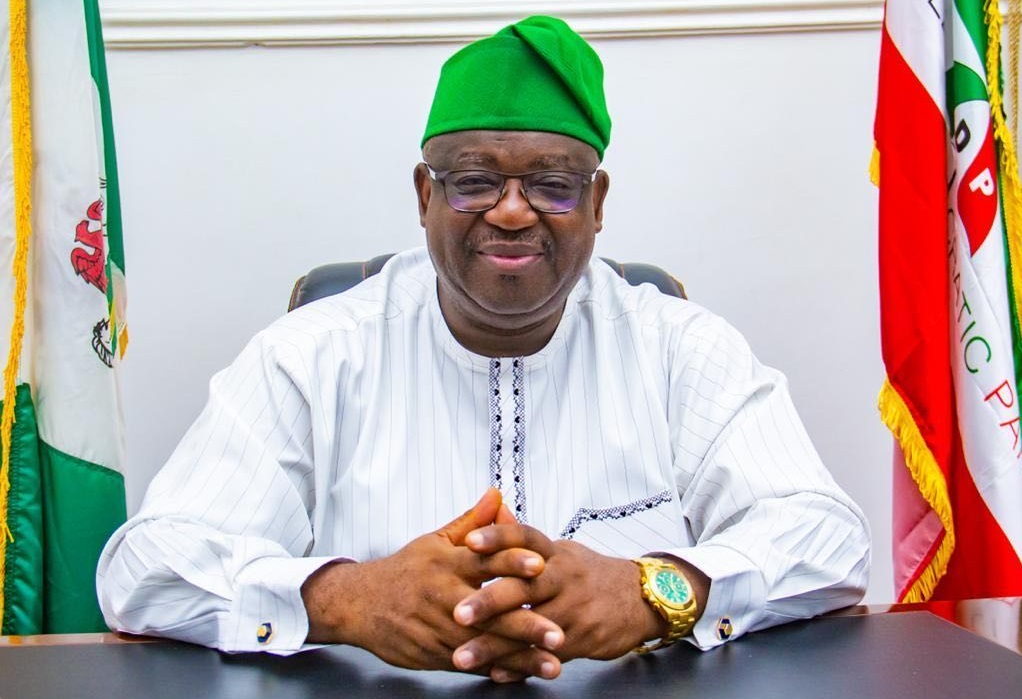
Governor Caleb Mutfwang of Plateau State has apologised to the people of Bassa Local Government Area (LGA) for the failure of government and security agencies to protect lives and properties.
Fifty-one persons were gunned down early Monday in the Zikke community of the LGA, with houses razed and many displaced about two weeks after a similar attack led to the killing of scores of persons in Bokkos Local Government Area.
Less than two days after the most recent assault, Governor Mutfwang apologised for the government’s inability to protect the people.
Fifty-one persons were gunned down early Monday in the Zikke community of the LGA, with houses razed and many displaced about two weeks after a similar attack led to the killing of scores of persons in Bokkos Local Government Area.
Less than two days after the most recent assault, Governor Mutfwang apologised for the government’s inability to protect the people.
The governor said this on Tuesday at the palace of the Paramount Ruler in Miango.
“I will tell you the truth: I have been crying since yesterday because I had trusted God that all the arrangements were put in place, that this will not happen again. We have made investments in security,” he said.
But like all human arrangements, sometimes they fail. I want to admit that on Sunday night into Monday morning, we failed you. Please, forgive me.”
He urged the people not to relent in their efforts to secure their communities and ensure that they complement security agencies’ efforts by providing vital information for intelligence gathering and expose the antics of the criminals.
Governor Mutfwang, in the company of security chiefs and members of the state executive council, was in Zikke community to commiserate with the people on the death of over fifty persons killed in Monday’s attacks.
The Paramount Ruler of Irigwe land, Ronku Aka, who is the Brangwe of Irigwe, urged the government to come to the aid of the communities with the provision of social amenities in the area.
The governor and the entourage also went to see some of the families who lost their loved ones in the attack. The victims have been buried just as members of the community demanded action to stem the rising wave of insecurity in the state.
Plateau State has been a hotbed of attacks, but the renewed spate of attacks adds a fresh layer of twist to the decades-long crisis rocking the North-Central state.
After the most recent assaults, President Bola Tinubu ordered security agencies to fish out the masterminds, describing the attacks as condemnable.
While experts have linked the lingering Plateau crisis to farmers-herders tussle for resources, Governor Muftwang said it was sponsored and genocidal.
According to him, over 64 communities in the state have been taken over by gunmen.
News
Court reserves verdict in Ganduje, seven others alleged financial infractions case
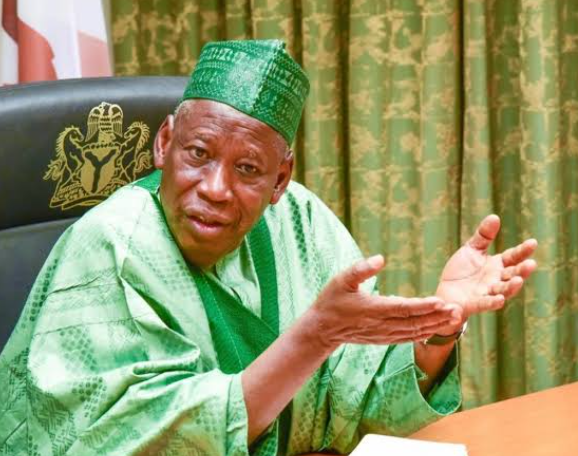
The Kano State High Court on Tuesday reserved ruling in the high-profile case involving the National Chairman of the All Progressives Congress (APC), Dr. Abdullahi Umar Ganduje, and seven others, who are facing an eight-count charge bordering on bribery, misappropriation, and diversion of public funds.
The case, instituted by the Kano State Government, lists Ganduje, his wife Hafsat Umar, Abubakar Bawuro, Umar Abdullahi Umar, Jibrilla Muhammad, Lamash Properties Limited, Safari Textiles Limited, and Lasage General Enterprises Limited as defendants.
When the case came up for hearing, the legal teams for all defendants presented various preliminary objections challenging the jurisdiction of the court and filed applications for extension of time.
Leading the defence for Ganduje, his wife, and Umar, Offiong Offiong (SAN) told the court: “We filed our preliminary objection dated November 18, 2024, supported by a 28-paragraph affidavit and a written address. We also filed a reply on point of law dated April 4, 2025. We urge the court to grant our application.”
On the other hand, the prosecution led by Adeola Adedipe, SAN, maintained that the defence applications lacked merit.
“The state’s reply to the preliminary objection is dated October 22, 2024. It is backed by a seven-paragraph counter affidavit and a written address with supporting documents,” Adedipe said.
“We urge the court to dismiss the applications in their entirety.”
Counsel to the 3rd and 7th defendants, Adekunle Taiye-Falola, filed a similar preliminary objection dated October 18, 2024.
In response to the complainant’s counter affidavit, we submitted a further and better affidavit dated December 12, 2024, along with a reply on point of law. We respectfully urge the court to grant the application,” he said.
Sunusi Musa, SAN, representing the 5th defendant, filed his own objection with similar supporting documents.
“We are seeking not just a grant of our application, but also substantial costs against the complainant,” Musa added.
Ashafa Yusuf, counsel to the 6th respondent, noted: “Our notice of preliminary objection was dated September 9, 2024. We filed a further and better affidavit on February 17, 2025, and a reply on point of law. We request the court to grant our reliefs.
For the 8th defendant, counsel Faruk Asekome also filed a preliminary objection and followed up with a further affidavit and legal reply dated February 13, 2025.
“We have complied fully with the procedural requirements, and we ask the court to grant the application,” he said.
Presiding over the case, Justice Amina Adamu-Aliyu granted the applications for an extension of time. She, however, reserved ruling on the preliminary objections.
“Ruling on the notices of preliminary objection is hereby reserved. A new date will be communicated to all parties in due course,” Justice Adamu-Aliyu stated.
The court’s eventual decision on jurisdiction is expected to determine whether the trial will proceed or be dismissed at this stage.
-

 News10 hours ago
News10 hours agoSHOCKING! One month after giving birth, woman discovers another baby in her womb
-

 News10 hours ago
News10 hours agoTears, anguish as Plateau Community buries 51 killed by bandits
-

 News10 hours ago
News10 hours agoAngry investors raid CBEX office, loot assets in Ibadan after digital Platform crash
-

 News16 hours ago
News16 hours agoPeter Obi speaks as Benue govt. blocks humanitarian visit
-

 News8 hours ago
News8 hours agoCBEX: 60 fraudulent Ponzi scheme operators to avoid in Nigeria
-

 News17 hours ago
News17 hours agoFUOYE VC suspended over sexual harassment allegations
-

 Politics10 hours ago
Politics10 hours agoIgbo Youths Set To Mobilize 5 Million Man-March In Support Of Tinubu, Kalu
-

 News10 hours ago
News10 hours ago‘Not something I’d wish on anyone’ — Melinda Gates opens up on divorce






